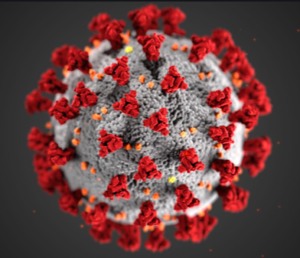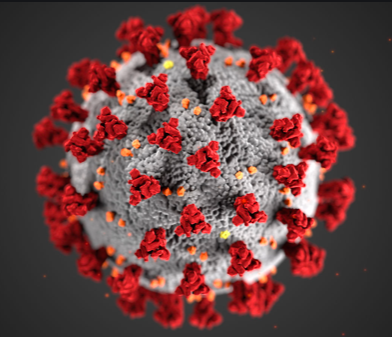 It seems to come out of nowhere. Maybe you’re watching television, reading, or playing with the children. Maybe you’re laughing, talking, or simply being quiet and enjoying the moment. Suddenly, from another room, the shouting begins: “Goddamn it! Fucking Asshole!” A string of obscenities harsh enough to rock the walls. And then you hear the crash. Something has gotten the fist, the slap, the slam. Something is broken. Something that can be repaired. Something that can’t.
It seems to come out of nowhere. Maybe you’re watching television, reading, or playing with the children. Maybe you’re laughing, talking, or simply being quiet and enjoying the moment. Suddenly, from another room, the shouting begins: “Goddamn it! Fucking Asshole!” A string of obscenities harsh enough to rock the walls. And then you hear the crash. Something has gotten the fist, the slap, the slam. Something is broken. Something that can be repaired. Something that can’t.
In the kind of stress-related anger I’m talking about, unlike fury that results in the physical violence towards another person or animal, the violence is generally aimed towards inanimate objects—computers, tables, chairs, doors—and not humans. But don’t think that just because you don’t feel the burn of the slap, no damage has been done. Even if you sit, cowering and deathly quiet in the next room, waiting on the storm to pass, you are a victim. And just like Hurricane Zeta, the gale-force winds can topple trees and rock relationships.
Anger is a spontaneous release of energy that comes without warning to those who experience it or are witness to it, and it is usually explosive, lasting only minutes. Anger without physical violence is a form of abuse that often goes unmentioned, because, at least on the outside, no one is harmed.
Anger, especially during Covid, is affecting more and more households the further we go into this pandemic. And now, with Covid positivity rates increasing, forcing us to shelter in place again, cold weather making it challenging to gather outside, and a difficult political season that doesn’t seem to end, men, women, and even children struggle to manage their emotions.
According to Wexner Medical Center at Ohio State University, several contributors are adding up to a more stressful society, and more rage and lashing out is a result. “For example, grocery lines may be slower, work tasks may require quick adaptation and time may be increasingly devoted to new roles or obligations brought about by social distancing measures, such as child care or homeschooling,” writes Travis D. Westbrook, MD. In addition to daily irritations is an increase of stress due to social isolation, job insecurity, children and adults at home instead of school or work, and the inability to engage in other activities to relieve stress. Those who might otherwise never raise a voice or a hand are finding it difficult to cope.
During non-Covid times, we can participate in activities to help us deal with daily stress and prevent its buildup. One of the first pleasures to go in 2020 was the Atlantic Coast Conference tournament and other basketball competitions during the month of March Madness that follows. While some sports fans can become fanatics—research shows that domestic violence increases during the Super Bowl, for instance—the very act of watching sports helps release tension for many people. As gyms and other exercise facilities across the country closed, another source of stress release was gone. Being with other people takes our minds off our own problems; being forced to stay home offers little opportunity to relieve tension through the company of others.
Incidents of nonviolent anger, similar to domestic abuse aimed at a person, are often followed by apology and regret: “I’m so sorry. I’m trying hard. It won’t happen again. I love you so much.” And yet, the cycle continues. Stress builds to a head. The volcano erupts again and again. The damage is done.
What can we do when we live with someone with an anger issue?
Avoid responding to anger with anger. Remember that it isn’t about you so much as it’s about the situation. Yes, the angry ones will feel guilt and remorse, which should not give them a pass, but responding in anger only escalates the stress.
Remove yourself from the situation. If someone around you is angry, get as far away from them as possible. Move to another room. Go for a walk. Take a drive. If possible, bring the children and/or pets with you.
Seek help. If the anger becomes physical or abusive in any way, or if it simply becomes too frequent or too disruptive to deal with, find a hotline, friend, or loved one who can help you out of the situation.
Remember that YOU are not the reason for someone else’s anger. Don’t fall into the habit of telling yourself if only you had not said what you said, done what you did. If only you were better, more quiet, more responsive. No, stress-related anger is about one thing: stress. It’s not about you.
What can you do if you are the one with the temper?
If you feel your own stress level rising and are prone to anger, address the situation before your anger explodes. Leave the situation that’s causing you stress. Seek physical exercise, the more strenuous the better.
Find ways to be with others. Social isolation can be destructive. Whether it’s through phone calls, texts, or emails, don’t allow yourself to be isolated. Socializing has an amazing way of minimizing our own problems and offering support.
Again, don’t be embarrassed or ashamed to seek help. Anger can be damaging to everyone, and yet, anger is a natural emotion that should not be ignored or suppressed. It needs an appropriate outlet.
And, no matter what, whether you are the victim or the perpetrator, try to be kind to yourself and others. What we are experiencing this year is like nothing we have ever experienced. We are in this together, and we can get through it together.
 Barbara Presnell lives and writes in Lexington and teaches in Charlotte.
Barbara Presnell lives and writes in Lexington and teaches in Charlotte.

There are no comments
Add yours